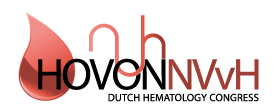Less Sugar, More Target: Unlocking CD20 for Potent Antibody Killing of B cell Non-Hodgkin Lymphoma
B cell non-Hodgkin lymphoma (B-NHL) represents the most prevalent hematological malignancy globally, contributing to an estimated 250,000 deaths each year. Rituximab, an anti-CD20 monoclonal antibody, is key in treating B-NHL subtypes such as diffuse large B-cell lymphoma (DLBCL) and chronic lymphocytic leukemia (CLL). However, rituximab-based regimens (e.g. R-CHOP) fail in roughly 40% of DLBCL patients due to refractory or relapsed disease, often linked to reduced CD20 surface expression. This study aims to identify genetic regulators of CD20 expression. Targeting these pathways to enhance CD20 levels may restore therapeutic sensitivity and improve immunotherapy outcomes in B-NHL.
We performed an unbiased whole-genome CRISPR screen in DLBCL and CLL cell lines to identify genes that regulate the expression of CD20. Targets were validated by both genetic and pharmacological approaches.
We identified the glycosylation machinery to affect membrane availability of CD20. Both genetic perturbation and pharmacological inhibition of this pathway increased CD20 membrane expression in multiple cell lines across several B-NHL subtypes. Importantly, pretreatment with pharmacological compounds leading to enhanced availability of CD20 significantly potentiated antibody-mediated tumor cytotoxicity. Experiments to elucidate the mechanism behind these observations are ongoing.
Unbiased CRISPR screening of CD20 regulators uncovered key molecular pathways driving its expression. These insights may reveal novel strategies to enhance CD20 surface levels, potentially improving the efficacy of immunotherapy in B-NHL.

